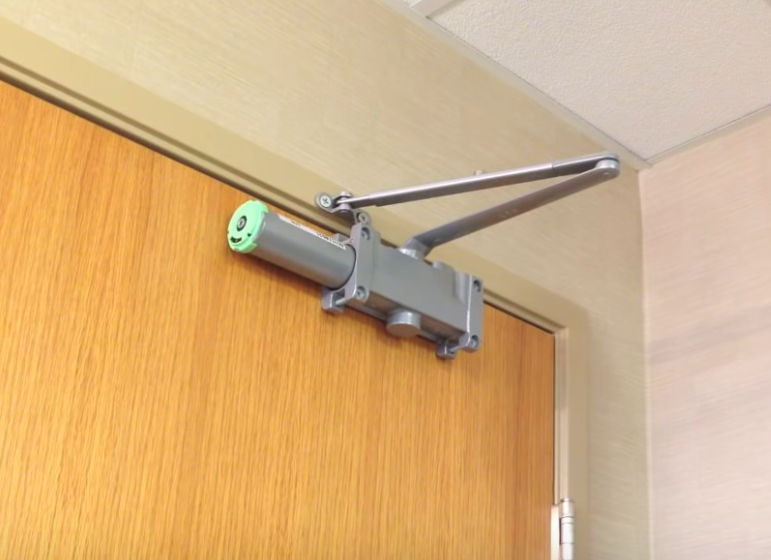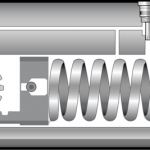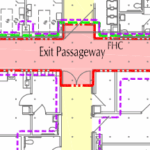 A while back, I posted a Quick Question about whether a missing closer cover on a fire door assembly should be noted as a deficiency during a fire door inspection. There was a lot of discussion, but I didn’t receive an official answer. Last week, Door Safety held their spring training for door safety inspectors, and the question was raised again there. Several people emailed me to ask the question again, and Laura Frye Weaver emailed me with the answer! 😀
A while back, I posted a Quick Question about whether a missing closer cover on a fire door assembly should be noted as a deficiency during a fire door inspection. There was a lot of discussion, but I didn’t receive an official answer. Last week, Door Safety held their spring training for door safety inspectors, and the question was raised again there. Several people emailed me to ask the question again, and Laura Frye Weaver emailed me with the answer! 😀
As I’ve said before, the answer to every single question is NOT always found in the codes and standards. Some answers depend on the manufacturer’s listings, and other questions need a bit more investigation. This is the answer from LCN, and I think it makes a lot of sense:
Door closers certified for use on fire door assemblies are provided both with and without covers. In instances where closers may have both options, UL tests those closers in a worst case scenario – the worst case is for the door to be tested with a closer cover. The reason this would be the worst case is because the cover can trap heat and fluids against the doors during the fire tests which may result in flaming failures. Also, some plastic covers can combust due to the high temperatures. LCN closers provided with both plastic or metal covers have all been tested in this worst case scenario. Our listing files do not impose restriction on the usage of the cover. Closers that do not have the covers in the field retain their listings provided the UL label is present on the body and arm of the closer.
So there you have it…as long as the LCN closer has the UL label on the closer body and arm, the missing cover is not a fire door deficiency.
Agree? Disagree? What do you think?
You need to login or register to bookmark/favorite this content.









Great to know, THANKS!!!!
While it may not be a code issue, it is just plain ugly without the cover.
Lori
When you are performing engineering failure analysis you always use the worst case scenario if you don’t have hard data to follow.
The plastic cover adds fuel load to the closer and door assembly. Therefore a closer without a cover has less fuel load and is therefore does not detrimentally effect the performance of the closer and door assembly. From an engineering standpoint no no closer cover still passing is totally defendable.
Thanks Paul!
– Lori
When it’s written and explained like this, it makes sense. However, without these explanations, I would be questioning it as well, as I would assume it’s tested fully assembled and thus, any change from that would not be approved.
I completely agree!
– Lori